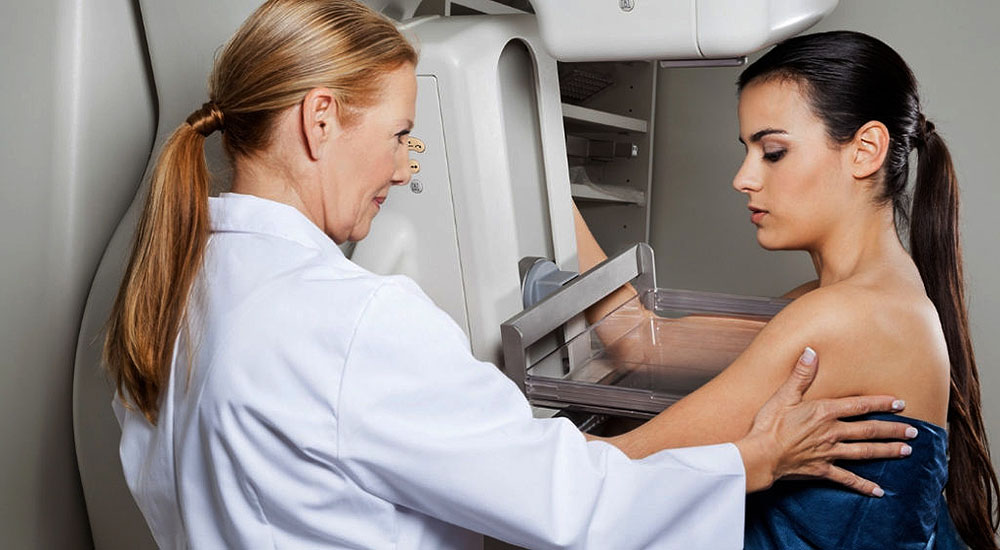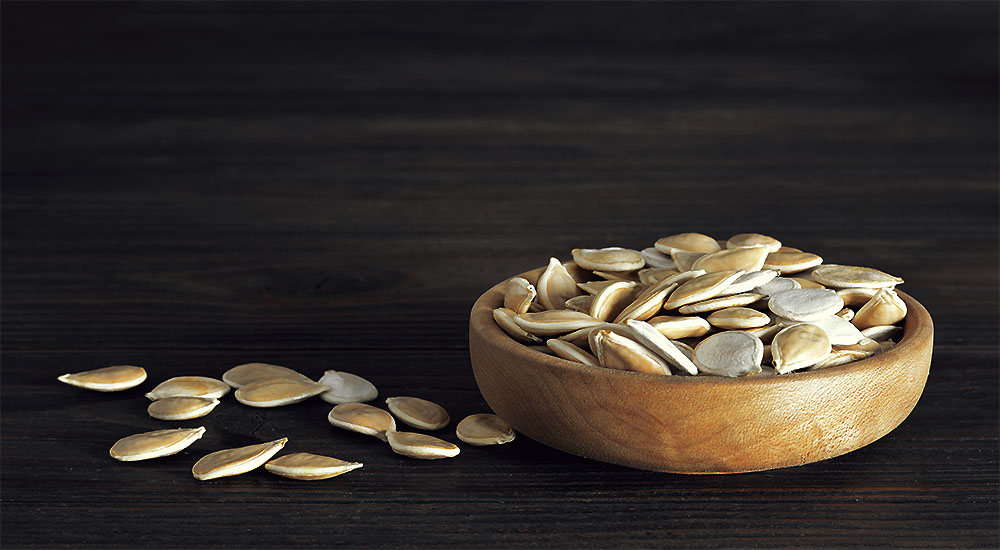Know the Dangers of Mammograms

What you really need to know about breast cancer
October is Breast Cancer Awareness Month. The Susan G Komen Foundation will be flaunting its pink ribbons and there will be Walks to end breast cancer.
I’m frustrated with the Susan Komen foundation. It’s not their purpose, it’s truly admirable to want to end breast cancer, but their actions don’t support their mission. For that reason, I am unable to lend them support.
Their pink ribbons are donned by corporate sponsors such as Kentucky Fried Chicken and Yoplait, to name but a few.6
Why does Susan G Komen “get in bed” with Big Dairy?
A variety of studies link dairy intake to breast cancer (and cancer in general). Chicken contains more saturated fat than beef, even before it’s been fried. Can you support an organization that aligns itself with food manufacturers whose products are linked to increased breast cancer risk?
As Dr. Michael Greger likes to say, “Big Broccoli” is not exactly a where the money is, but if the Komen foundation was truly serious about reversing and preventing breast cancer, they would align with groups and foods that truly focused on lifestyle and diet practices that supported good health and reduced cancer risk.
I’m not trying to say yogurt should be illegal, but the subliminal message to those who pick up a yogurt container with a pink ribbon on it is, “I’m supporting the cure for breast cancer by eating this food.” Ditto for fried chicken.
Do mammograms prevent breast cancer?
This month you’ll hear, “Get your mammogram.” Population surveys reveal that women perceive mammograms as something that will prevent breast cancer. The marketing is so good that the average citizen feels that it’s safe and preventive to receive radiation to one’s breasts.
The decision regarding mammogams belongs to you, although if you’ve ever tried to gain support from your gynecologist to forego one, you’ll find it nearly impossible.
I have gone to mammogram centers on two occasions to receive a breast ultrasound, only to be told I was condemning myself to breast cancer by omitting a mammogram.
Have you been intimidated by getting a mammogram?
Have you had such an experience? I’ve spoken to many women who were intimidated into getting mammograms. They didn’t want one but received one anyway due to the unrelenting pressure from a mammogram facility.
Such situations need to stop. An activity that can potentially increase your risk of developing cancer shouldn’t be forced upon any woman.
American Cancer Society reduces mammogram recommendations
Major organizations like the American Cancer Society have altered their mammogram recommendations in the past three years. Instead of beginning mammograms at age 40, they have increased that age to 45. Similarly, they urge women over age 55 to reduce their exposure to radiation by testing every two years vs annually.
Why the change? The U.S. Preventative Task Force, five years ago published their recommendations of delaying mammograms to “reduce the harms of mammography screening by nearly half”.
What harm are they cautioning about?
- False positives are a huge concern. Twenty percent of the time an initial breast cancer diagnosis is incorrect. But the initial scare is followed up by additional mammograms and thereby radiation, unnecessary biopsies, sometimes surgery, and, unnecessary radiation and chemotherapy. The stress alone from such a scare will damage a woman’s health, not to mention the life-long threat of damaging radiation and chemotherapy.
- The elephant in the room is the sheer damage caused by the radiation itself. Radiation causes cancer and can mutate cells. This is not opinion, but fact. I truly believe that within the decade breast radiation will be considered barbaric and will not be practiced as a regular course of the evaluation, but rather will be only used at times of absolute need once another, safer method* has yielded suspicious results.
- The pressure placed upon the breast tissue during a mammogram is intense. I’ve never done one, but women have told me the pain can be excruciating. Even scarier is the data that extreme pressure on a potential tumor that is well encapsulated by your immune system can burst it and cause it to spread.
Is thermography or ultrasound an option to evaluate breast health?
*Thermography is a non-invasive and safe diagnostic tool that may be used as an alternative to mammograms. It detects areas of heat in the body that can point to areas where inflammation may be occurring.
Thermography may detect physiological breast cancers that are the size of a pinhead.
A 2008 study out of the American Journal of Surgery found thermography specifically has a 97% sensitivity rating for its ability to discover malignances, sometimes years before a visible tumor has even been formed. That’s true early detection.
Do you have fibrocystic breasts?
If you have fibrocystic breasts, thermography can be especially effective. Mammography is particularly poor in such instances, though doctors will still begin with it despite the knowledge that it’s highly difficult to adjudicate a problem. A woman with fibrocystic breasts will often get up to two mammograms due to “suspicious” area(s), only to end up with a truly safe and non-invasive ultrasound that clears her of any problem. Or, if she’s less “lucky”, more invasive procedures will occur before the all-clear is given.
I well remember my mother, who had fibrocystic breasts, having mammograms twice per year. On each occasion she received two mammograms, followed by an ultrasound, only to be told she was fine. Of course, this was after the initial scare of “something doesn’t look right”.
Yet because of her dense breasts, she was recommended to come in more often. Each year she received 4 times the amount of radiation of her breasts.
For more data visit the American College of Clinical Thermography.
Do mammograms detect breast cancer?
That really is the biggest question, correct? Should we do them because they truly “catch” breast cancer early in a way that nothing else can? That is what we’ve been led to believe.
Yet, according to a 2014 research paper published in the British Medical Journal that is not the case. The researchers hailed from Canada and they monitored close to 100,000 women over the course of 25 years – certainly a robust study.
Their findings?
Mortality rates in women who received mammograms were the same as those who did not receive them.
Additionally, 20% of cancers that were found were not a threat to a woman’s life and therefore required no treatment.
The choice should be yours alone
The decision of whether you receive a mammogram should be your own after you have done your due diligence on the pros and cons. You shouldn’t be bullied into the decision or guilted into it. You should feel good about whatever decision you make.
With that said, it’s important to realize that screenings are not prevention and they don’t improve your health in any way. If you want to reduce your risk of breast cancer, there are a few steps research-based steps you can take.
Reduce your odds of getting breast cancer
The healthy lifestyle index recommends the following:
- Exercise
- Eat more plant foods and move away from the Standard American Diet of high meat, dairy*, sugar, and unhealthy fat intake.
- Avoid tobacco
- Minimize alcohol consumption
*A study of 100,000 women followed for 20 years revealed that milk drinking women had higher rates of death, increased cancer, and more heart disease. Three glasses/day increased the risk of death by 2X. The study also revealed that higher milk intake was associated with more osteoporosis and bone fractures, something I mention frequently.7
And, two more from me:
- Get down to your ideal weight and get rid of any belly fat. This is also a known initiator for cancer.
- Optimize your vitamin D3 level. A simple blood test will give you your baseline. There is a strong link between insufficient vitamin D3 and breast cancer. The fix is a simple supplement. Hint: take D3 along with K2 for optimal bone health.
How did you score?
If you scored well and are a young woman under the age of 40, you have reduced your risk by 50%.
Better yet, if you’re an older woman scoring well, you’ve cut your risk by 80%.
How to increase longevity if you’ve already had breast cancer
You can cut your risk of death almost in half by instituting two simple lifestyle changes.
- Eat 5 or more servings of fruits and veggies every day
- Walk briskly for 30 minutes a day, 6 days a week.
It really is incredible what a huge effect some simple lifestyle changes can create.
Practicing the above two simple steps without a diagnosis protects you significantly.
Genetic Testing
If you have breast cancer in your family, it may seem scary to find out if you have any genes predisposing you to cancer. I understand the trepidation, but the great news is that the field of epigenetics gives us incredible tools to alter expression of genes.
Epigenetic testing of your genes is one of the services we offer here at Root Cause Medical. It’s much better to know any predispositions, whether overtly for breast cancer, or any areas that can increase your risk of a variety of degenerative diseases.
Knowledge is power; the testing is easy and painless – a simple swab of the inside of your mouth. The results reveal how you can counter any genetic weaknesses with a simple nutritional and/or lifestyle fix.
Are you frustrated with your health?
We have a simple mission here at Root Cause: regain, retain, and reclaim your health by identifying what’s at the root of your symptoms. We won’t just drug you to mask symptoms, but rather will get to their true cause and reverse them through dietary, nutritional and lifestyle means – drugs are only a last resort, and usually temporary when needed at all.
If you’re not feeling your best, don’t put up with it. You’re not “too old” or “destined” because of your genetics. Let us help you.
Discovering your ideal diet is a mainstay of our program, as is the evaluation of nutrient levels, food sensitivities, infections, toxins, genetic predispositions, and hormonal imbalance.
Each program is tailored to you; it addresses the exact imbalances creating your symptoms.
Do you need help with your health?
We have the diagnostic and testing tools, the clinical experience, and a different medical approach to discovering the root cause of why you have the symptoms that are bothering you. As long as you are ready to make some dietary and lifestyle changes, we can help you. We will "hold your hand" through the changes, step by step, to make each step an easy one. We are located in Clearwater, FL, at 1000 S Ft Harrison, at the corner of Ft. Harrison Ave. and Magnolia St. There is plenty of parking space directly accessible from Ft Harrison. If it is not convenient for you to come to Root Cause Medical Clinic, we offer telehealth/telemedicine consultations to residents of certain states. Call us for details.
Contact us for a Consultation – Call 727-335-0400

Dr. Vikki Petersen DC. CCN
Founder of Root Cause Medical Clinic
Certified Functional Medicine Practitioner
Dr Vikki Petersen is a public speaker, author of two books, several eBooks and creates cutting edge content for her YouTube community. Dr Vikki is committed to bringing Root Cause Medicine and its unique approach to restoring health naturally to the world.
Ask a Doctor
Have a health concern you'd like to speak with a doctor about? Or just want clarity on a subject? Ask Us!
Featured Articles
Popular Stories
References:
- Kroenke, Candyce H, et al “High-and Low-Fat Dairy Intake, Recurrence, and Mortality After Breast Cancer Diagnosis”. Journal of the National Cancer Institute. Volume 105, Issue 9, 1 May 2013
- Breast Care. 2010 Mar; 5(1): 44–46. Consumption of Cow’s Milk and Possible Risk of Breast Cancer
- Barnard, M.D., Neal D. “Milk Consumption and Prostate Cancer”. Physicians Committee for Responsible Medicine
- Chan, June M., et al “Dairy products, calcium and prostate cancer risk in the Physicians’ Health Study”. The American Journal of Clinical Nutrition. Oct. 2001 vol. 74 no. 4 549-554
- Kroenke, Candayce H., et al “High-and Low-Fat Dairy Intake, Recurrence, and Mortality After Breast Cancer Diagnosis”. Journal of the National Cancer Institute. Volume 105, Issue 9. May 2013
- Kinsman, Kat “Activists call foul on KFC bucket campaign”. CNN. April 28, 2010
“Yoplait Announces Expanded Commitment to Breast Cancer Cause by Raising the Bar for Support to Long-Time Partner Susan G. Komen for the Cure”. Business Wire - Dr. Greger: “Food as Medicine: Preventing and Treating the Most Dreaded Disease with diet” 2014 “Milk Intake, Mortality and Fracture risk” 2015


